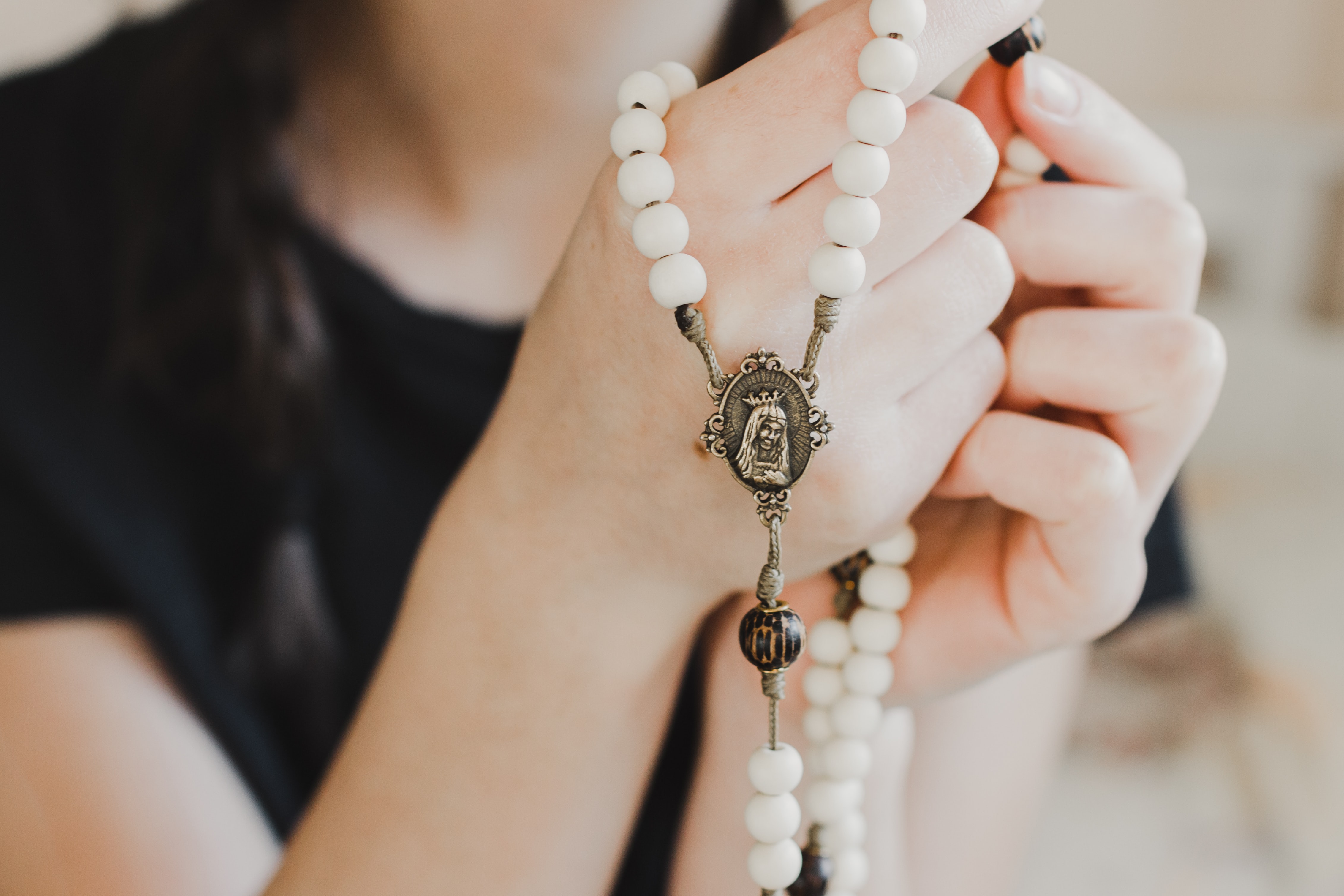
(Unsplash/Thérèse Westby)
"Our help is in the name of the Lord!" That's today's psalm response. Do we mean it? If so, what do we mean by it?
The framers of our Lectionary paired today's selection from Exodus with Jesus' parable of the widow and the unjust judge. As always, the Hebrew Scripture selected to accompany the Gospel functions like an editorial comment. In the Exodus story, Moses' people succeeded in battle while they could see Moses holding up the staff of God, whether by his own strength or with a little help from his friends.
That was a pretty marvelous staff! God first got Moses' undivided attention by turning it into a snake and then back into a staff. After that, Moses repeated the snake performance for the Israelites. He also used the staff to part the Red Sea and to get water from a rock. Some people would call it Moses' magic wand. Jewish scholarship explains that it was a tool in the hands of God. Catholics might call it sacramental — an effective sign of God's power working through Moses for the people. The gist of today's story is that as long as Moses held it up, God's people won the battle.
In liturgical dialogue with this incident, we hear Jesus' parable of the widow and the narcissistic judge. A superficial interpretation of the story paints God as rather negligent, suggesting that if we try hard enough, we can get God's attention and justice. Is the implication that we care more about the problems of the world than God does? Do we have to awaken God to the needs of the chosen who call out day and night?
Luke introduced this parable saying, "Jesus told his disciples a parable about the necessity to pray always without becoming weary." To put this in a larger context, let's ask, "What do we know of Jesus' way of praying?"
In the Gospel of Luke, we hear that prayer provided the context for two of Jesus' extraordinary encounters with God: one at his baptism and the other at the transfiguration. In both of these, God affirmed Jesus' identity as the Son. We also hear that Jesus would go off to pray alone, especially for his 40-day desert sojourn and before he chose the 12 disciples. The disciples knew that Jesus prayed and finally asked him to teach them his way, which he did with the Lord's Prayer. We get to listen in as Jesus prayed when he thanked God for giving the lowly special revelations and in the Garden of Gethsemane when he summed up his life of prayer saying, "Not my will, but yours be done."
None of these references even hint that Jesus badgered God. Rather than express his own wants or needs, Jesus' prayer revealed his filial relationship to God, a relationship characterized by obedience. How does this relate to the widow who pestered the judge?
Advertisement
This parable fits the classic pattern of turning things upside down. In real life, the widow is the defenseless and the judge powerful. But in the light of Jesus' Beatitudes, the widow is a blessed one and the judge the object of woe. As a blessed one, the widow fulfills a dual evangelizing role. First of all, from the most powerless position in society, she publicly proclaims her human dignity by demanding her rights — rights that belong not just to her, but to all the lowly who receive special attention from the God of Israel. Secondly, because Exodus 22 warns of dire consequences to anyone who wrongs a widow or orphan, the beggar woman is actually offering the judge a chance at redemption for the miniscule price of granting her justice against her adversary.
In Jesus' society, as in our own, people in respectable positions, particularly religious leaders, are supposed to model God's justice. Yet here, the widow carries out Jesus' evangelizing and saving work. She does it by demanding the justice that will bring salvation not just to her, but also to someone with unused power to bring about God's reign. She is calling for help in the name of the Lord.
In the end, it seems that the perseverance Jesus calls for has nothing to do with badgering God, reciting hundreds of rosaries or doubling down on novenas. The widow shows us that calling out for God's help is supposed to lead us to be unflagging in pursuit of the reign of God. Moses' outstretched staff was not magical, but a reminder that God was with the people. Jesus' prayer expressed and solidified his relationship with his Father. Our prayer makes sense when it deepens our awareness of our vocation as God's own and disciples of Jesus. Our help is in the name of the Lord, our prayer enables us to carry out God's will.
[St. Joseph Sr. Mary M. McGlone serves on the congregational leadership team of the Sisters of St. Joseph of Carondelet.]
